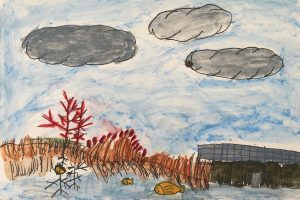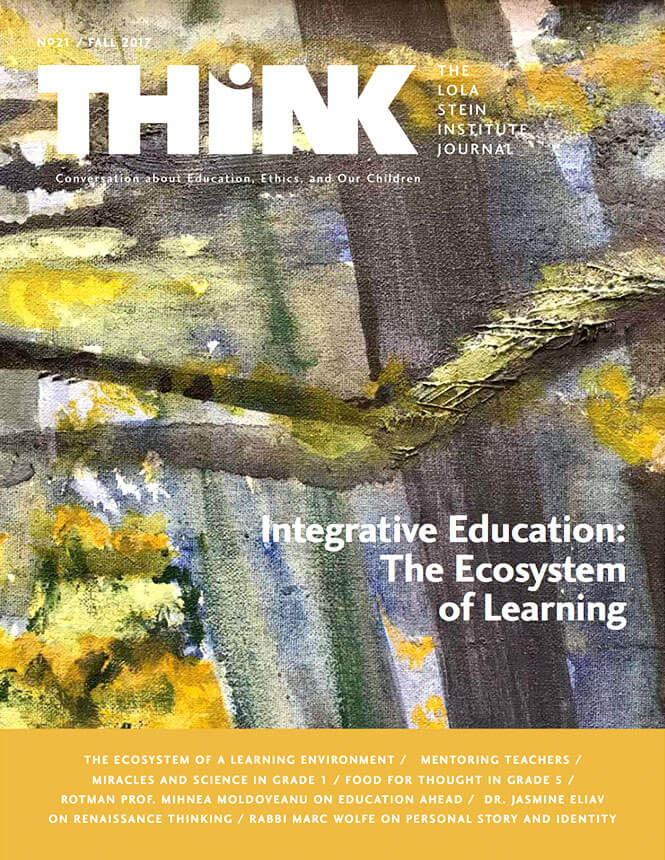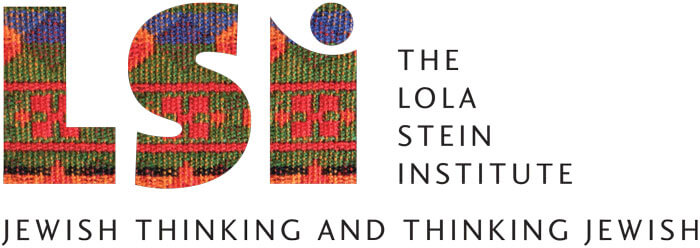- How We Teach

- First Column
- Second Column
- Third Column
- Case Studies

- First Column
- Second Column
- Culture & Community

- First Column
- Second Column
- News & Views

- Admissions

- First Column
- Second Column
- Support Us

- About

- First Column
- Second Column
- Parent Hub
- Attend an Open House
- Take a Tour
- Donate Now
- Calendar
- Blog
- 416-635-1876
- Search
School of Salmon
An Ecosystem for Successful Learningby

Researchers have discovered that the quantity of salmon returning to spawn in coastal streams and rivers in British Columbia directly affects the flora and fauna of the old-growth forest surrounding the streams. The discovery suggests a new paradigm for understanding the relationship between species and the environments in which they live. Old models tended to focus on how certain animals would thrive in particular habitats without looking at how the environment responded to hosting those particular species. The new recognition is that some animals — in this case, salmon — have a reciprocal affect on the place where they live. As The Globe and Mail reported on this research,When bears, wolves and other animals drag salmon carcasses from spawning streams they cause an intricate chain reaction that changes the nature of the surrounding forest, according to new research from Simon Fraser University.
Plant species that efficiently take up nitrogen from the decomposing bodies of salmon flourish – and soon there are more song birds, drawn by the dense growths of wild berry bushes and prolific insect hatches.[1]
In this habitat, not only did an increase of salmon improve conditions for other plants and animals, they also enhanced conditions for their own survival. Salmon require cool streams in which to lay their eggs. Old-growth forest, with dense foliage and tall trees, blocks out the sun and keeps the streams cool; the salmon create the forest that enables them to thrive.
As a result of this research, the “Salmon Forest,” became an exemplar of dynamic interactions among diverse living and non-living elements — plants, animals, streams, minerals –within an ecosystem. Human activity was also identified as an element within this web of interactions.
When I was Director of Curriculum at The Toronto Heschel School, I centred our Grade 3 Habitats Study around the “Salmon Forest Ecosystem.” We wanted our students to see how plants, animals, and people affect one another in vital sustainable relationships. Our school has an ardent interest in ecological stewardship, and we like to draw models for sustainability from the natural world.
To show the intimate connection between the needs of individuals and their communities and contexts, we also integrated the Jewish adage: אם אין אני לי מי לי, כשאני לעצמי מה אני – “If I am not for myself, who will be for me; if I am only for myself, what am I?” The Salmon Forest became our paradigm, not only for understanding physical habitat, but also for seeing the Grade 3 class community as an interdependent ecosystem of individuals.
Now, as Head of School, I see that the Salmon Forest has much to teach about our school as a whole. Using “ecosystems” as a way to analyze organizations and businesses is not new, but the remarkable web of mutual reinforcements in the Salmon Forest Ecosystem offers a particularly appropriate model for the intensively integrated elements of our school.
The Toronto Heschel School is founded on a vision of multi-level integration: the school presents an integrated curriculum, in which different academic disciplines—math, history, science, Chumash, French, Talmud, English and Hebrew—are taught in a way that mutually reinforces concepts of each discipline. The school is intentionally pluralistic, advocating creative interplay between the different streams of Jewish practice. The school sees the child as a whole person, whose social, physical, intellectual, and spiritual development is understood as an interconnected adaptive process.
However, as all successful organizations know, it is one thing to have a vision, quite another to bring the vision to reality and sustain it over time. We understood that vision, practice, and maintenance must be mutually supportive, and we embedded this educational philosophy into the by-laws of the school. What contributes to The Toronto Heschel School’s thriving ecosystem is how the vision inspires the organizational systems and cultural norms that, in turn, sustain the unique vision. The interplay of vision, systems, norms, and culture embody the complexity for which the Salmon Forest is an apt analogy.
Teaching a curriculum that integrates academic disciplines requires an intense level of collaborative planning by senior educator leaders and classroom teachers. In turn, organized collaborative planning necessitates logistical preparation for designated opportunities when teaching teams can meet to develop, document and refine the collective product. Our teachers have planning time built into their weekly schedules; time for team work and time when they are mentored in efficient, effective, educational strategies. Because the teachers are simultaneously learners and participants in a progressive and evolving curriculum, they are attuned to the spirit and rationale behind it; they feel ownership of the educational artistry and are passionate about teaching it in class. With the right organizational “habitat,” the talent and skill that each teacher brings to the table coalesce to produce results that inspire the teacher to want to do more and do it better, enhancing the educational “habit.” Inventive curriculum inspires engaged learners, and engaged learners inspire our teachers to innovate further.
A creatively integrated curriculum, infused with the arts, social action, and meaningful Jewish content, inspires children, teachers, and families alike. The Heschel School’s learning environment successfully attracts engaged, committed families from across the spectrum of Jewish practice. The resulting mix of enthusiastic young families, in turn, enhances the school’s vision of pluralism and the feeling of all Jews welcome. Families who come to the school are looking beyond traditional categories of Jewish identity; there is an appreciation of a school’s role in the development of a child’s identity. Beyond academics and physical fitness, young families are now attentive to social, emotional, intellectual and spiritual learning. They are receptive to new modes of learning. The presence of these families in the school challenges the teachers’ leadership further to ensure the highest standards. The reciprocity between school and family is another key part of what makes the school’s habitat flourish.
Academics is only one piece of a thriving school ecosystem. To ensure that all students learn well, there must be a positive school culture that includes respect and mutual concern among teachers, students, and parents. A child, who feels left out, bullied, or unsafe cannot learn well, so the concept Derech Eretz Kadma L’Torah —respectful behaviour precedes learning—is paramount. At the Heschel School we place a premium on developing pro-social behaviour using middot (ethical practices) drawn from Torah as our models. Each week, schoolwide, we practise a particular middah such as “encourage others to have confidence” and “offer some of what you have others.” At the end of the week, students reflect on their practice of the middah and describe seeing others perform it too.
Visitors continually comment on how respectful the students are – that they hold doors open for one another and for guests; that they are friendly and caring towards one another. Our students learn frameworks and implement protocols for class conversations to ensure all voices are heard. In Junior High, students participate in a weekly civics class using a democratic process to deliberate, gradually select, and then implement a tzedakah project.
A culture of mutual respect and care among children requires adults to role model the behaviour. When children watch their parents demonstrate care and respect for each other, and for the teachers, they internalize these norms and, in turn, treat their friends well. The Heschel School has a Chevra committee made up of dedicated parents who organize parent social events, deliver Shabbat welcome packages to new families, arrange shiva meals, and run an annual teacher appreciation week.
A prominent facet of the Heschel School ecosystem is the deeply embedded culture of social inclusion, rooted in the vision of pluralism. Families are encouraged both by school leaders and by veteran school families to uphold a practice of inclusion for parties, play-dates, and life-cycle celebrations. It is a school tradition for the entire class to be invited to b’nai mitzvah celebrations, and we have seen the power of this practice in the sense of community it builds among the students. We encourage parents of children to speak to one another when social dilemmas involving their children arise. Families work collaboratively with teachers to resolve social-emotional and learning concerns. Experience has taught us that when parents communicate and problem-solve with each other and with the school, the class culture is healthier and students are more focussed on their learning.
In a healthy school ecosystem, the learning supports the culture and the culture supports the learning. Curriculum committed to invention nurtures inspired teaching; teaching becomes inspired when it is nurtured by systems for professional collaboration and continued learning that are well conceived and reliable. Respectful, committed families inspire respectful, committed teaching, and vice versa.
A famous dictum of the Talmud teaches that we can learn modesty from the cat, honest labour from the ant, and good manners from the rooster (Eruvin 100b). Watching salmon we learn to create a flourishing learning community. Like the Salmon Forest of British Columbia, with interdependent synergistic relationships among salmon, bears, trees, berries, and rivers, The Toronto Heschel School is a thriving, diverse, unique, complex ecosystem; the dynamic interplay of the parts creates the beauty of the whole.
[1] Mark Hume, “Health of Salmon Run Affects Ecosystem of Forest,” The Globe and Mail (Vancouver), March 24, 2011, https://www.theglobeandmail.com/news/british-columbia/health-of-salmon-run-affects-ecosystem-of-forest/article597181
Greg Beiles , Director of The Lola Stein Institute and Head of School of The Toronto Heschel SchoolGreg Beiles became Director of the Lola Stein Institute in 2010 and Head of School at the Toronto Heschel School in 2014. For the 18 years prior to being named Head of School, Greg worked and taught at the school is increasingly senior capacities. From 2008 to 2010 he also served as Director of Curriculum and Training at the Lola Stein Institute.
Greg holds an MA in the Philosophy of Education from The Ontario Institute for Studies an Education and is a PhD Candidate at the Centre for the Study of Religion, both at the University of Toronto. His research explores a re-framed vision for Jewish education.
Greg’s publications include “Jewish education and pluralistic engagement”, in Discipline, Devotion and Dissent: The promise and problems of Jewish, Catholic and Islamic schooling, ed. G. McDonough, M. Memon, and A. Mintz. In the PEJE publication, Jewish Day School Education, he published “And you shall love your God.” His column “Awe and Wonder” appears regularly in think magazine; his titles include; “What Makes a School Jewish?” and “Education for the Next Generation: Thinking in the Disciplines.” Greg has led workshops and presentations in a variety of settings, including The Bridges Conference at the Banff, York University, the Jewish Federation of Ottawa, and the Lola Stein Institute, A few workshops titles include: A Critical Thinking Approach to Numeracy; Five senses and the Five Books of Moses; Metaphor and God; Understanding Understanding; Discipline & Wonder: Integrating the Theories of A.J. Heschel and Howard Gardener in an Educational Context.
NEXT ARTICLE
Coaching the Integrative TeacherSpecial Feature
Satisfaction GuaranteedFood for ThoughtMatter, Metamorphosis, and Miracles in Grade 1The World Is My TeacherIntegrated Learning at The Toronto Heschel SchoolBeyond the BuzzOur Sages Tell Us
The 21st Century Renaissance ThinkerChaos and OrderNarrative and IdentityWho Tells Your Story? Who Tells Ours?Re-Designing Formative Education on the Eve of the Fourth Industrial RevolutionTranscendental LearningColumns
Recommendations for Children and the People Who Love ThemGood Books by Gail BakerAn Ecosystem for Successful LearningSchool of SalmonPerspectives
 The Lola Stein Institute (LSI) is a centre of inventive educational thinking and addresses the challenge to re-frame schooling for the exigencies of our times.
The Lola Stein Institute (LSI) is a centre of inventive educational thinking and addresses the challenge to re-frame schooling for the exigencies of our times.










